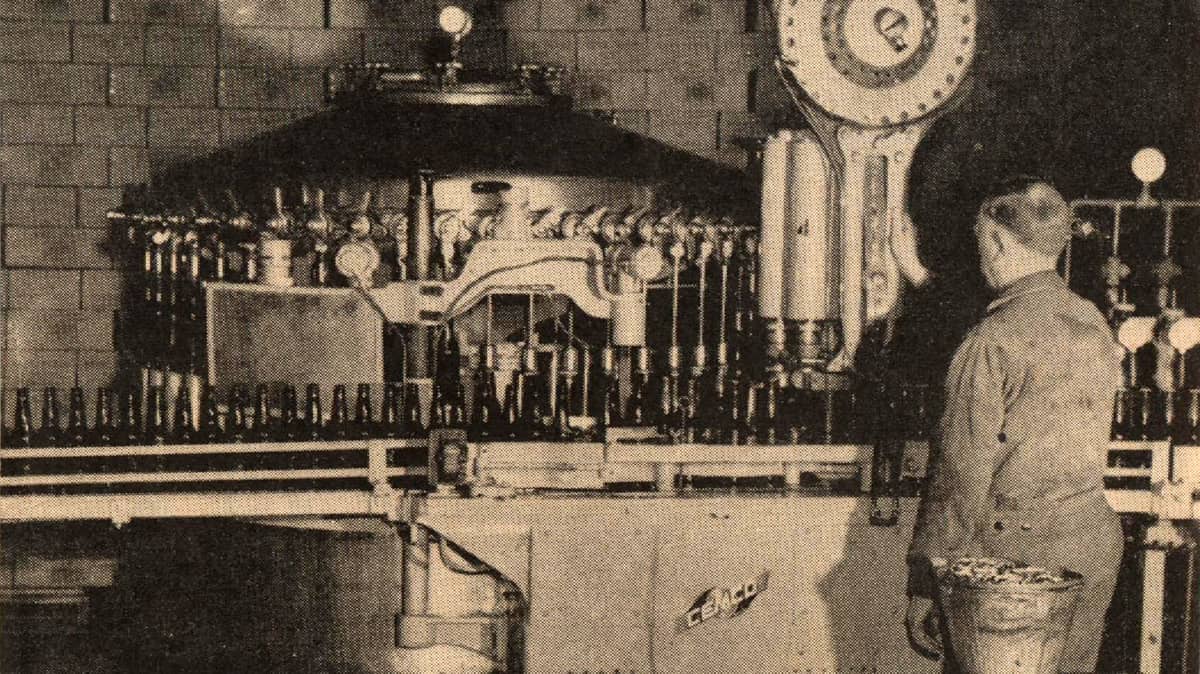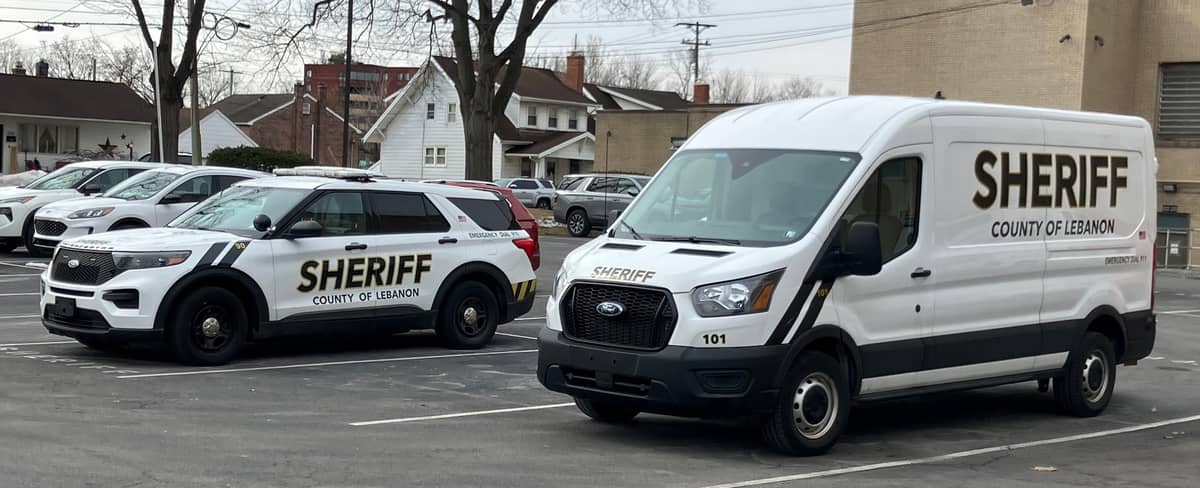This article was originally published in 2021. The brewery opened in 2023, see LebTown’s story about the opening here.
Lebanon Valley Craft Brewery, 840 North 7th Street in Lebanon, is set to reopen, more than 60 years since beer was last brewed at the address. The address’ history as a brewery, however, begins over 160 years ago, at a time when breweries in Lebanon were a significant local industry.
This brewery in particular, however, not only offers a glimpse into that period of history, but also the era of local beer production following the repeal of Prohibition. In fact, the Lebanon Valley Brewing Company was the only successful brewery to exist in the decades after Prohibition until its eventual closure in 1959. It’s a winding story with frequent ownership shakeups and name changes, and, as would be expected of a business in a city with strong German roots, it involves quite a bit of lager.
Early years and the Lebanon Brewing Company
The building at 840 North 7th Street was built in 1856 by Henry Hartman, according to Robert Heilman’s book “Brewers and Breweries: A Brief History of the Brewing Industry in Lebanon County, Pennsylvania.” Little information exists about Hartman’s operation, but following his death in 1870, the brewery was eventually bought by Christopher Ganster in 1878.
Incidentally, North 7th Street was also the location of the oldest brewery in the county: Charles Arnt’s, which began operating as early as 1759.


The brewery passed through more owners and, by 1884, was being operated by president Siegfried Siebert and manager E. Ehrhart (later replaced by George Ehrhorn). The lineup of beers at the time included Bairisch and Vienna Lager Beer, both bottled by Adam F. Hain & Son, a prominent bottler among several at North 8th and Maple Streets. In 1887, the brewery was incorporated as the Lebanon Brewing Company.
Heilman provided some additional information on the available beers in the late 1880s and early 1890s, which included a porter and a cream ale in addition to four lagers made “using Canada malt and Bohemian hops:” the Weiner, Maerzen, Salvator, and Export. Altogether, the volume of beer produced in a year came out to about 7,000 gallons.
The Lebanon Brewing Company also boasted what was a unique feature at the time: a tea house for female visitors to the company. According to Heilman, women who took tours of the business would visit the tea house at the tour’s conclusion and drink tea with other refreshments (the men were evidently sampling the beers for sale in a separate area).
The New Lebanon Brewing Company and Prohibition
Following two sales in 1893 and 1894, the former Lebanon Brewing Company was purchased by partners John Hartman and Henry Arnold and rebranded as the New Lebanon Brewing Company. In the same year of the second sale, the expanded brewery operation, which was “very likely an enlargement of the building that housed the former Lebanon Brewery,” began selling its products: Export Beer, Cream Ale, and Porter.




The business continued through the rest of the 19th century and the first two decades of the 20th. Trouble itself was brewing on the horizon for the local industry, however, and the start of enforcement of the 18th Amendment — better known as Prohibition — finally halted the malt and stopped the hops in many of the city’s breweries.
In the case of the New Lebanon Brewing Company, however, it seems that Prohibition was only a “near-death” sentence; because records show that the brewery was still in business until 1924, Heilman speculates that the business was producing what was known as “near beer;” beer with less than the enforced limit of a half percent of alcohol. Despite the new company producing averaging 14,000 barrels of malt beverages in a year of peak production, it too eventually fell victim to Prohibition.


Resurrection and transformation into the Lebanon Valley Brewing Company
Though the New Lebanon Brewing Company had shut down in 1924, it had been purchased by William Donmoyer, who reportedly spent approximately $250,000 to transform the brewery into its last form, the Lebanon Valley Brewing Company, which opened following the 1933 repeal of Prohibition.
The refurbished brewery was now the biggest in Lebanon with 8 buildings, including what was believed to be the original 1856 building with an expansion added on, an office, a boiler house, and a stable, among other structures. Jacob Kozloff, president and treasurer, and Julius Cohen, vice president and secretary, headed the new operation, while William Conrad served as brewmaster. New equipment at the time of the Lebanon Valley Brewing Company’s opening reportedly included a 200-barrel capacity kettle and storage tanks with a 60,000-barrel capacity.

The old-fashioned En Alte Pennsylvania Deitch Brau (i.e. Pennsylvania Dutch Old German Brew) was a popular product for the brewery, as was the Lebanon Valley Beer, Porter, Ale, and Pilsner. Overall, the average yearly production of the Lebanon Valley Brewing Company totaled some 45,000 barrels of beer. Notably, the facility produced its beer in tar-lined oak barrels and had a “tar pit” on-site for this purpose; oak wood, according to Heilman, added an undesired taste to the beverage and the tar served to prevent it from coming in to contact with the drink.
Though other breweries hoping to jump back into the industry after Prohibition started up again, only the Lebanon Valley Brewing Company managed to keep afloat. Heilman noted that this brewery was the only one of the county to be organized by labor. Local Union No. 198, Branch 2 Brewery Workers of the City of Lebanon, State of Pennsylvania was granted a charter in late 1933. Allegedly, a demand for a 25¢ wage increase in 1959 by the same union is to blame for the brewery’s downfall.



The end of the brewery did not quite spell the end of the brewery’s beers, however, which were produced for some time by the Eagle Brewing Company after the Lebanon Valley Brewing Company was sold to the former. The equipment used at the North 7th Street address, however, was not included as part of the agreement, and it was sold to a salvage company while the property itself fell into private hands and was used for other purposes.
For several decades, the property was owned by Martin Shuey, who transformed the brewery into a special museum.
In 2017, the process to update the old brewery into a functioning 21st-century business began, and four years later, the work of David Koch, Henry Goodwin, Michael Osborne and Kevin Booth is nearly finished. For one reason or another, the brewery property on North 7th Street has, time and again, been rebranded and reborn. Time will tell if the Lebanon Valley Craft Brewery will prosper, but if a brewery can reemerge from Prohibition all the stronger, starting anew after 60+ years doesn’t seem so far-fetched.
Here’s a toast to brewing beer the Lebanon way.


More pictures of the brewery may be found at the Lebanon Valley Craft Brewery’s website.
Questions about this story? Suggestions for a future LebTown article? Reach our newsroom using this contact form and we’ll do our best to get back to you.

Become a LebTown member.
Cancel anytime.
Monthly Subscription
🌟 Annual Subscription
- Still no paywall!
- Fewer ads
- Exclusive events and emails
- All monthly benefits
- Most popular option
- Make a bigger impact
Already a member? Log in here to hide these messages
Local news is a public good—like roads, parks, or schools, it benefits everyone. LebTown keeps Lebanon County informed, connected, and ready to participate. Support this community resource with a monthly or annual membership, or make a one-time contribution. Cancel anytime.

























